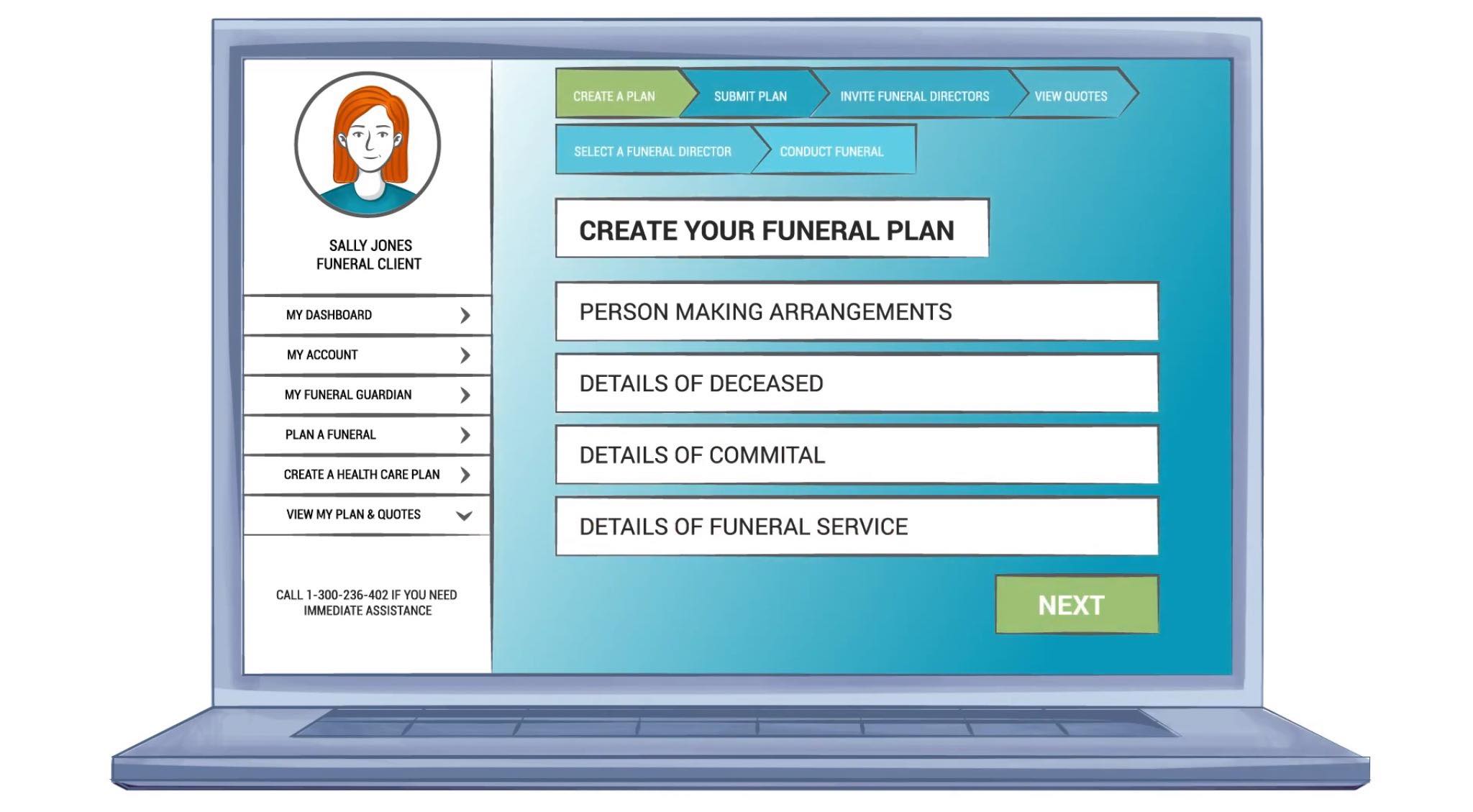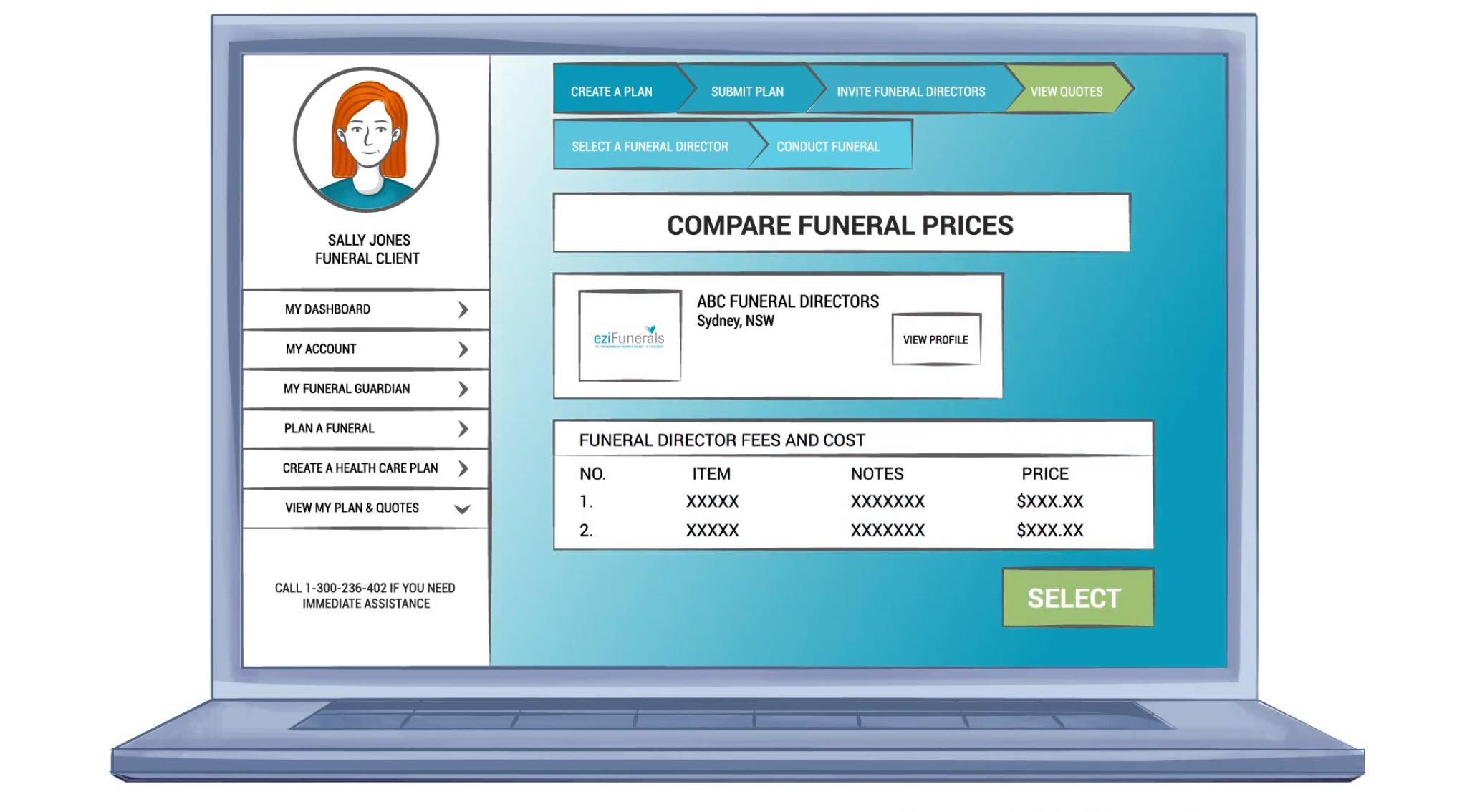If you are weighing up the two options, you’ve come to the right place. In this article we set out all of the arguments for and against cremation and burial.
1. Cremation vs Burial – The Process
Most people are familiar with the burial process, where the body is cleaned, dressed and sealed in a coffin or casket before being interred, usually below ground in a cemetery.
However, not everyone is familiar with the cremation process. How does cremation work?
During a cremation, the body is delivered to a crematorium either in a coffin or a cremation capsule (a cardboard container designed specifically for cremation). Staff remove any metal parts from the coffin or container and place it into the cremator.
Modern cremators use natural gas or propane and burn at temperatures between 870–980°C. The full cremation process can take anywhere between 1-2 hours. After the cremation, any remaining metallic objects (such as coffin nails and prostheses) are removed from the cremated remains which are then transferred to a processor to reduce the bone fragments to a fine, granular consistency. The “ashes” are then placed in a sealed container and dealt with according to the funeral director’s instructions.
2. Cremation vs Burial – Cost
The cost of burials has been steadily increasing over the past decade as the available space in cemeteries continues to fill up. Currently in Australia, the average cost of a burial including the grave plot and headstone is approximately $19,000.
In contrast, the average cost of a cremation is $7,420, which is significantly cheaper. Cheaper still, a direct cremation (i.e. a cremation without a service) can be arranged for as little as $1,250 – $1,995 depending on which state you live in.
If you are leaning towards a burial but can’t afford a traditional funeral, there are cheaper options such as a green burial or a direct burial.
3. Cremation vs Burial – Religion
One of the key concerns for people deciding between burial or cremation is whether they are permitted by their religion.
What does the Bible say about Cremation?
Biblical Arguments Against Cremation
While the practice of Eastern Orthodox (including Greek Orthodox) and Fundamental Christianity prohibits cremations, the Bible itself does not have any specific teachings in relation to cremation. As a result, Christians have been required to interpret the text.
The main argument of Christians who oppose cremation stems from the teaching that the bodies of those who have died will be resurrected and reunited with their spirits. Accordingly, under this belief, if a body has been cremated, and only the ashes remain, it cannot be reconnected with its spirit.
Christians who are against cremation also point out that most of the dead in the Old Testament are buried, and that the only references that refer to bodies being burned in fire occur when people are being punished.
Biblical Arguments For Cremation
Is cremation allowed by the Bible? While there’s no specific answer, those who argue in the affirmative raise the following points:
- Even with burial, though decomposition takes longer, all flesh and bone eventually decays leaving no body behind to be reunited with the soul.
- The “spiritual bodies” that will be raised are new bodies, and not the old earthly bodies of flesh and blood.
- There are many situations in where due the the cause of a person’s death, their body will be destroyed – such as in a fire, an explosion or other tragic accident. A belief that cremation denies a new spiritual body from being raised up would also deny these people of life after death.
Islam
Under the Islamic faith, cremation is considered “haram”, meaning it is forbidden. According to the faith, all dead are required to be shrouded and buried in the earth, which is why Muslims are given exceptions under state laws and cemetery rules to be buried in shrouds rather than coffins.
Judaism
Similarly, in Judaism, cremation is strictly prohibited. The source for this comes from the Torah, in Genesis 3:19, where Adam is told by God that “You will return to the ground for it was from the ground that you were taken.”
Cremated remains cannot be interred in a Jewish cemetery and the customary laws of mourning are not allowed for those who have been cremated.
Hinduism and Buddhism
Finally, there are a number of religions where only cremation is permitted, such as Hinduism and Buddhism. Under both of these religions, it is believed that the soul is reincarnated. They also believe that the soul is attached to the body, so if the body is buried and not cremated, the soul will be made to linger in this life unable to move on to the next rightful place.
4. Cremation vs Burial – The Environment
There have been numerous studies into whether burial or cremation is better for the environment. Most studies show that cremation is more sustainable and eco-friendly, but not always by as much as you might think.
While approximately 160kg of carbon dioxide is created by a cremation, almost four times more than a burial, when you factor in that graves in cemeteries need to be maintained, watered, and fertilised in perpetuity, they actually have a larger carbon footprint. Studies estimate cremations to be anywhere between 10-50% better for the environment.
If you are environmentally conscious, by far the best option for the environment is a green funeral, where bodies are interred in a green burial site without embalming in a 100% natural and biodegradable shroud or coffin.
5. Cremation vs Burial – Practical Arguments
Lastly, there are a number of practical arguments to be made for both burial and cremation that you should consider when making your decision.
Arguments for Cremation
- For families who live long distances apart or in different countries, cremation offers a more straightforward way to return remains home, rather than a full and expensive repatriation process.
- A direct cremation (i.e. a cremation without a service) can be coupled with a memorial service held at a later date, not only saving money but also giving families greater flexibility as to timing.
- Cremation allows remains to be scattered at a place of significance in accordance with a loved one’s wishes.
- Assuming the cremated remains aren’t interred in a cemetery, they can be taken by the family should they ever wish to relocate or move overseas.
Arguments for Burial
- A grave in a cemetery is permanent place that can be visited to honour and remember your loved one for generations to come.
- Without a permanent resting place, cremated remains can easily be lost, broken, or stolen.
However, keep in mind that it’s also an option to bury ashes in a cemetery, which offers cremation the same benefits of a permanent resting place.
A Personal Choice
Choosing between a burial or cremation is a very personal decision. In addition to all of the considerations above, many people simply have a strong gut instinct for one or the other. For example, some people have taphophobia – the irrational fear of being buried alive – or baulk at the thought of decaying over time.
While it can be a difficult subject to think about, it’s necessary. You should make time to discuss your preference with your family so that they’re able to confidently carry out your wishes without the stress of having to guess what you would have wanted.

About eziFunerals
eziFunerals supports individuals and families cope with end of life decisions, death and funerals. We are an independent, Australian-owned and operated company. We are not part of any other funeral company.
Our member Funeral Directors are chosen for their knowledge, quality, service, personalisation and experience. They go above and beyond, and will take the time to support the family.
For more information or to make contact with a trusted Independent funeral director, call eziFunerals on 1300 236 402 or visit www.ezifunerals.com.au.




